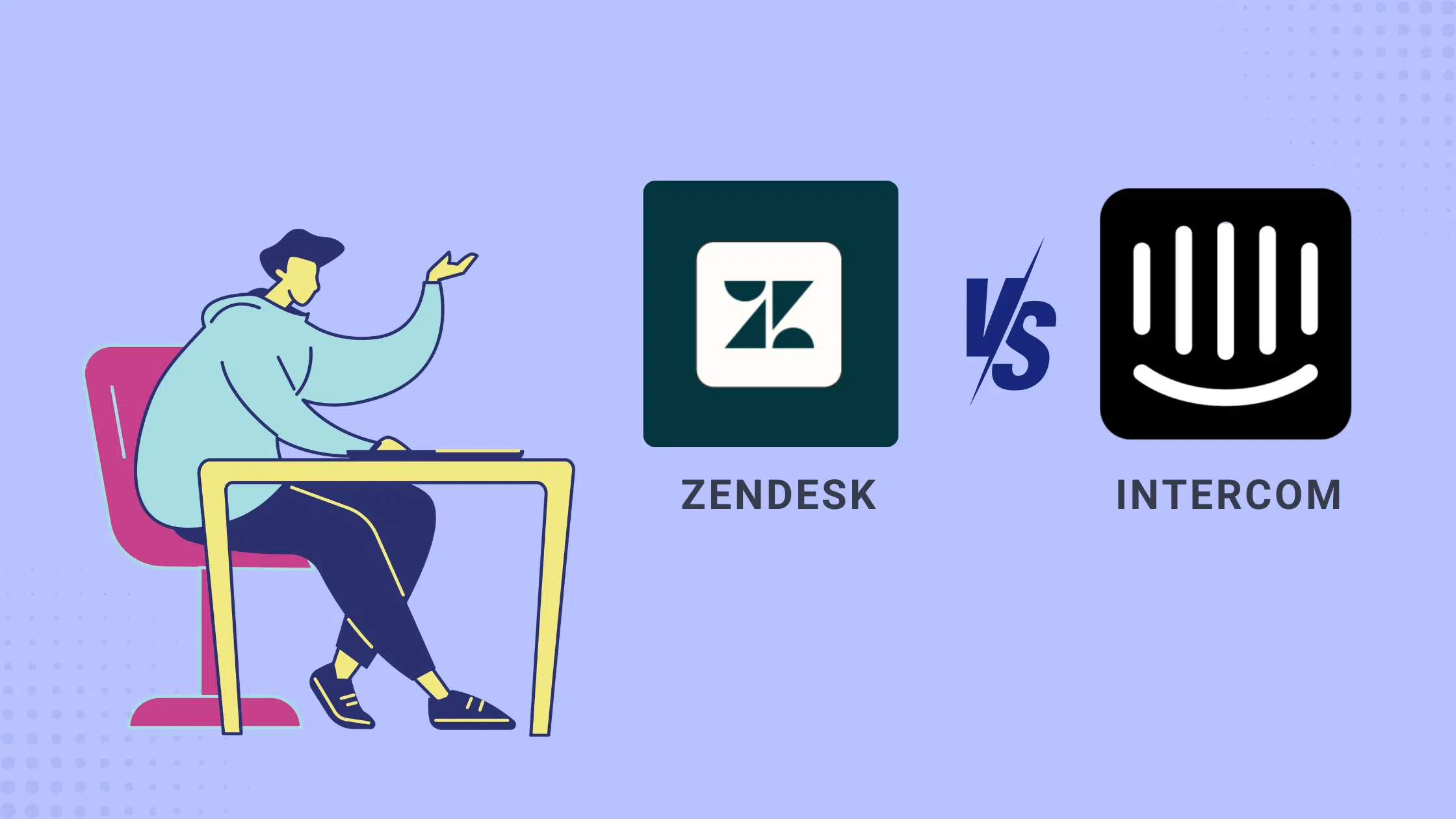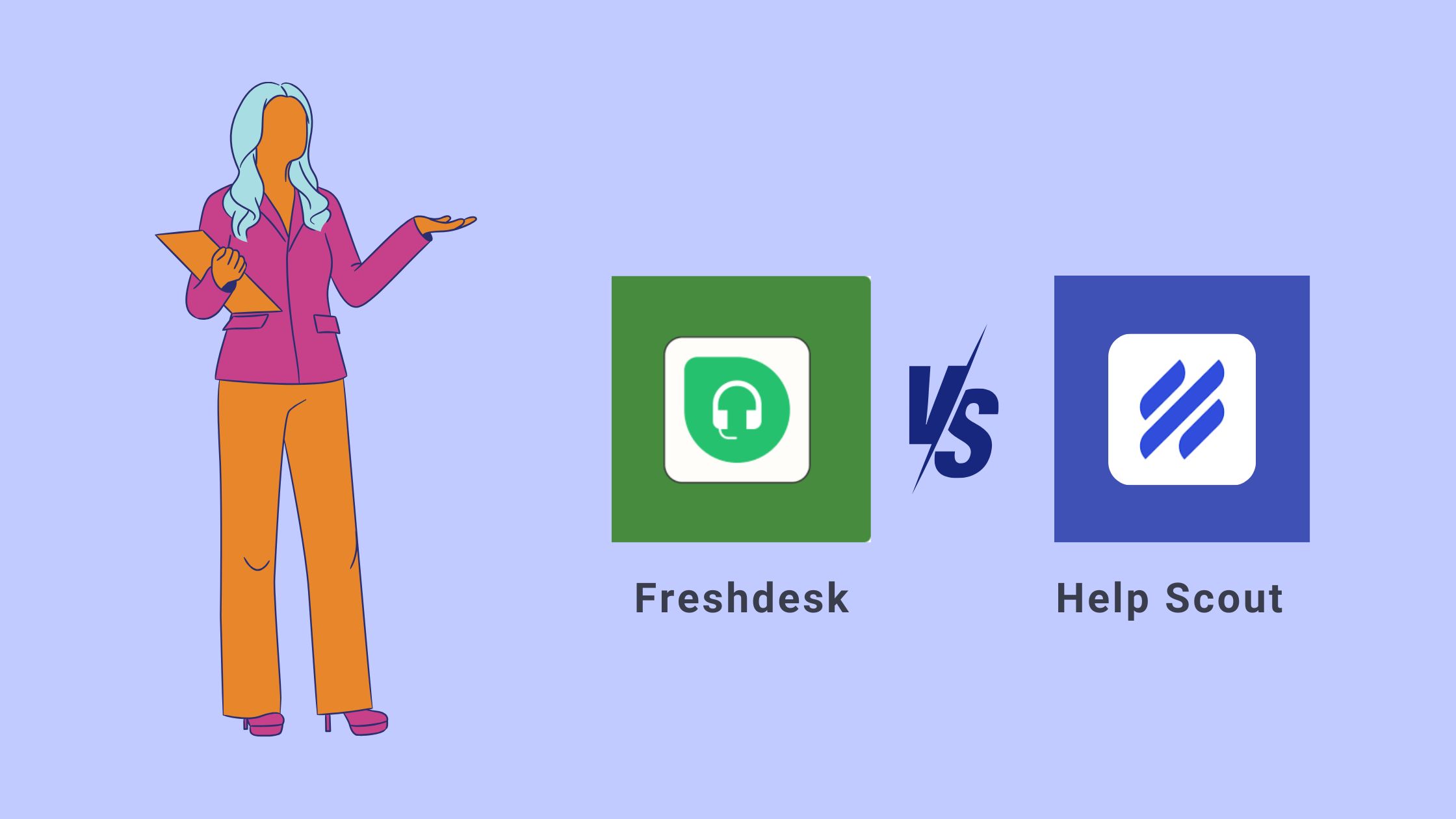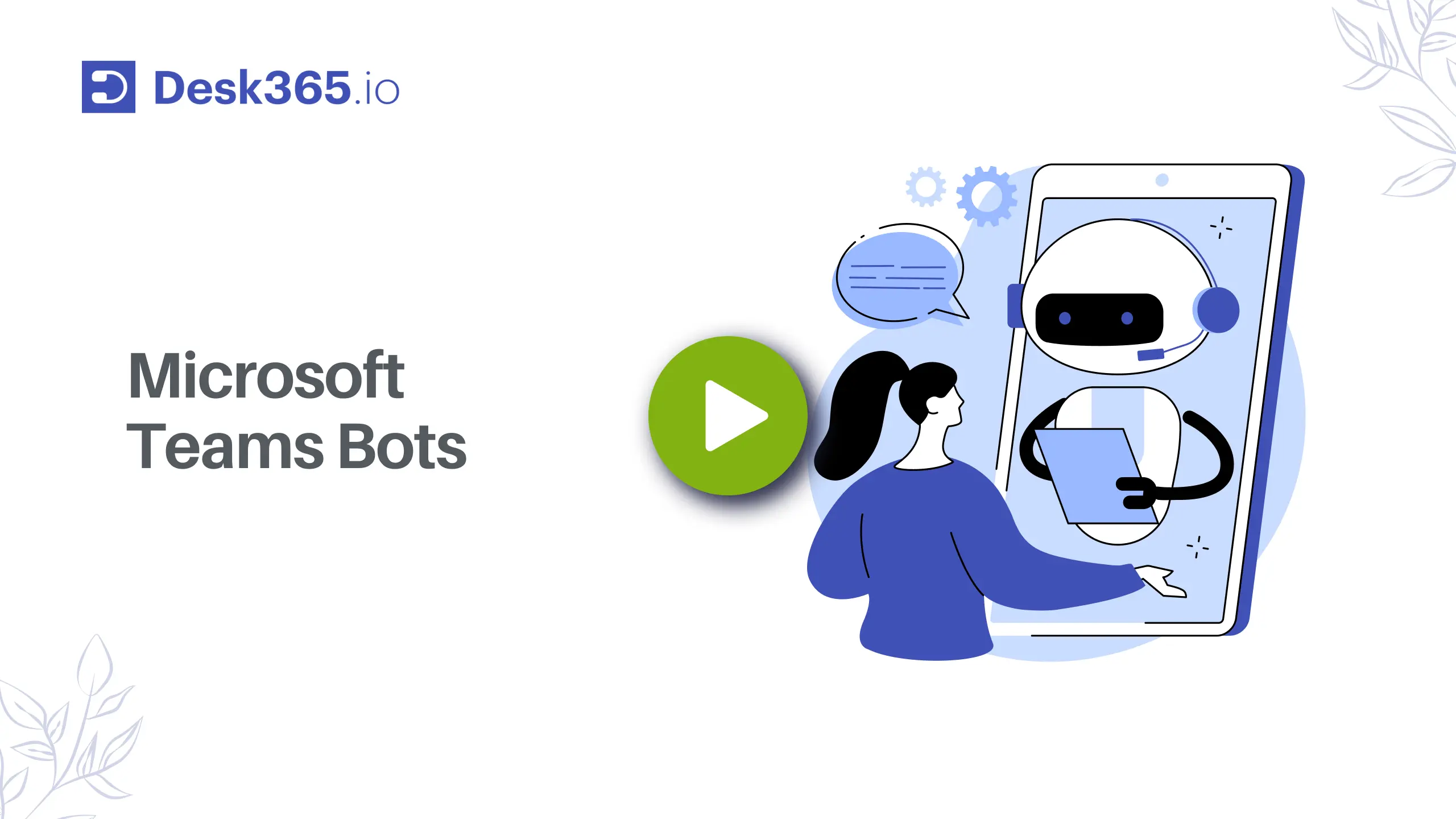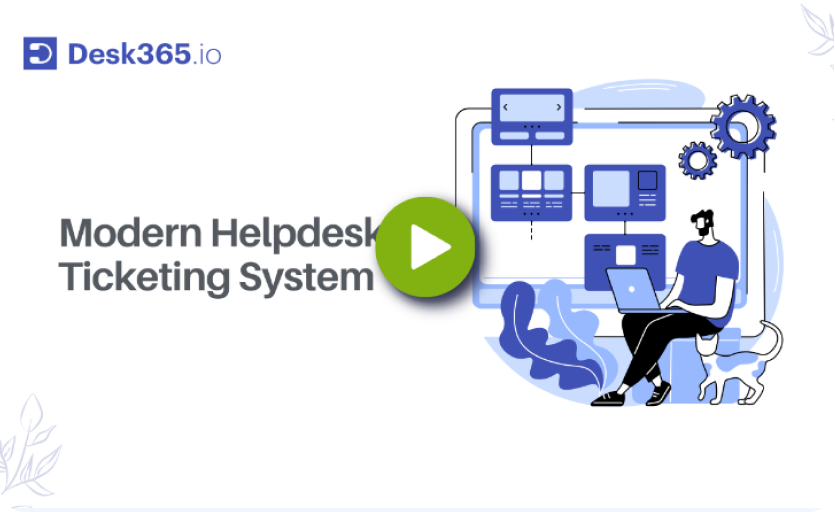As customer expectations continue to rise, support teams are under more pressure than ever to deliver fast, personalized, and seamless experiences. Intercom has made a name for itself by leading the charge into AI-powered customer engagement, but it’s not the only game in town.
While Intercom offers cutting-edge automation, chatbots, and integrations, its pricing structure can quickly become a challenge for growing teams. If you’re scaling fast or working with a tighter budget, the cost per interaction can escalate, pushing many businesses to search for smarter, more affordable options.
In this guide, we’ve handpicked the best Intercom alternatives for 2025, platforms that balance powerful features with flexible pricing, intuitive design, and standout performance. Whether you’re after advanced email support or seamless team collaboration, there’s something here for you.
Let’s jump in and discover the best fit for your team’s next chapter.
Why look for an Intercom alternative?
While Intercom remains one of the most well-known customer support platforms on the market, many users find themselves exploring alternatives due to recurring pain points that impact both their budget and support operations. Based on feedback from current and former Intercom users, several common concerns have emerged:
- High cost of AI resolutions
Intercom promotes its AI-first approach, but many users have raised concerns about the pricing model, particularly when it comes to AI-powered responses. These are often billed on a pay-per-resolution basis, which can become expensive very quickly, especially for businesses handling a high volume of customer inquiries.

Source: Reddit
- High costs after startup discounts
A common concern among users is the significant price jump after exiting Intercom’s startup program. Many find themselves scaling back on valuable features just to manage costs, which can be frustrating for growing teams that rely on those tools to operate efficiently.
“What I dislike about Intercom is that, unfortunately, once you exit the 95% discount of the startup program, the pricing becomes quite hefty. This has led us to downgrade some of the amazing tools and features in order to save costs, which is a bit disappointing given how valuable they were for our operations.“
Source: G2
- Lackluster customer support
Ironically, for a customer support platform, Intercom’s own support team is often described as unresponsive or unhelpful. Users have raised concerns about the platform’s support quality, especially during critical outages.
With no live assistance and delayed response times, getting help when it matters most can be challenging—making it a less dependable option for teams that need fast, responsive support.
“There is no live support. During major outages, which are far from uncommon, it is impossible to reach anyone. Their support is only available via chat, with 1-5 business day response times. Since the support team uses the same chat platform they offer to customers, it isn’t possible to reach someone during a major outage. The support is very low quality during emergency situations, so it is not a dependable tool for teams offering live customer support.“
Source: Software Advice
- Performance lags and technical issues
Intercom users have noted frustrating slowdowns, especially when accessing conversations or customer details. These delays, coupled with limited search functionality for closed tickets, can hinder support teams and reduce overall efficiency during high-demand moments.
“I find that the intercom sometimes has trouble loading some conversations, which is a major drawback for me. As a customer service representative, you’re fielding calls while waiting for the intercom inbox to load the customer’s information. In addition to the holdup, additional issues have slowed down the operation of the customer support team.“
Source: Capterra
“You can’t do a text search on your closed tickets. The only search available is the global search on all tickets“
Source: Capterra
Given these challenges, it’s no surprise that businesses are actively searching for more reliable, affordable, and responsive alternatives to Intercom. But with so many tools out there, how do you know which ones are worth considering?
To help, we’ve compiled a curated list of the top 10 Intercom alternatives in 2025, each offering different strengths, from transparent pricing and better customer support to strong AI capabilities and easy integrations. Let’s explore which platform might be the right fit for your needs.
Top 10 Intercom alternatives for 2025
1. Desk365
Desk365 is an AI-powered, cloud-based helpdesk platform designed to simplify and streamline customer support for modern teams. Built with flexibility and ease-of-use at its core, Desk365 brings together customer interactions from multiple channels like email, support widgets, web forms, and Microsoft Teams, into a single, unified workspace.
Whether you’re a small business looking for an affordable support solution or a growing enterprise seeking smarter automation, Desk365 helps your team respond faster, collaborate better, and provide excellent customer experiences without breaking the bank.
Key features:
- Microsoft Teams integration
- Omnichannel support (email, support portal, web widget, web forms, phone)
- AI-powered support
- Custom SLAs and automation workflows
- Knowledge base and customer portal
- Ticket categorization and routing
- Internal collaboration tools
- Canned responses and macros
- Powerful analytics and reporting
- Role-based access and user management
- Easy third-party integrations
Where Desk365 excels:
- Microsoft Teams helpdesk integration – Desk365 is built to work seamlessly inside Microsoft Teams, enabling agents to manage and respond to support tickets without leaving the Teams interface. It’s a natural fit for businesses already invested in Microsoft 365, boosting productivity by keeping support in your team’s existing workflows.
- Unified omnichannel support – Whether it’s email, a support widget on your website, or a web form, Desk365 consolidates all channels into a single, easy-to-navigate dashboard. This eliminates the need to switch tabs or juggle multiple tools and ensures no conversation slips through the cracks.
- AI-powered support – Desk365 leverages advanced AI capabilities to boost support efficiency and reduce manual workload. Features like the AI Agent, AI-generated knowledge base articles, ticket summarization, and Draft with AI help streamline responses, automate repetitive tasks, and ensure your team can focus on more complex, high-impact issues, all while improving first response times and overall customer satisfaction.
- Easy setup & intuitive interface – Desk365 is incredibly easy to set up and doesn’t require a long onboarding process. Its clean, intuitive interface makes it simple for support agents to get up and running within minutes.
- Smart knowledge base & self-service portal – Create and maintain an internal or customer-facing knowledge base to deflect common questions and reduce ticket volume. Customers can help themselves while agents focus on higher-priority tickets.
- Automation rules & SLAs – From auto-assigning tickets to triggering follow-ups based on time or condition, Desk365’s workflow automation helps you enforce SLAs and deliver consistent support experiences.
- Collaboration tools – Desk365 enables teams to collaborate efficiently through internal notes, and real-time notifications.
- Reporting & analytics – Access detailed performance insights with built-in reports that track ticket volume, agent productivity, resolution time, and more. You can also create custom reports tailored to your specific needs.
Pricing:
Standard – $12 per agent/month
Plus – $20 per agent/month
Free trial:
21 days, full-featured access with no credit card required.
2. Zendesk
Zendesk is a well-established, enterprise-grade customer service platform trusted by companies of all sizes, especially those with complex support needs. Known for its deep customization capabilities, scalability, and robust automation tools, Zendesk is a go-to solution for businesses that prioritize operational efficiency and customer experience at scale.
It also offers a strong AI suite that includes AI-powered ticket routing, intelligent triaging, and virtual agents helping teams resolve issues faster without compromising on support quality.
One of Zendesk’s standout strengths is its extensive integration ecosystem, with over 1,000 apps available, significantly more than Intercom’s 450.
However, it’s worth noting that some advanced features and automation capabilities may require purchasing additional add-ons beyond the base subscription.
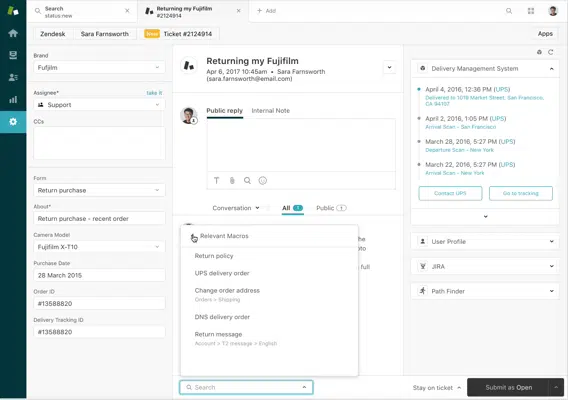
Key features:
- Omnichannel support: Handle customer conversations across email, chat, phone, social media, and more, all in one unified inbox.
- AI-powered automation: Use AI for ticket routing, customer intent detection, and virtual agents to streamline support.
- Customizable agent workspace: Tailor your workspace with apps and tools that match your team’s needs.
- Robust knowledge base: Build and manage help centers and self-service content to reduce ticket volume.
- Advanced reporting & analytics: Monitor performance, SLAs, and customer trends with real-time dashboards.
- Wide app integrations: Connect with over 1,000 third-party apps to extend functionality.
Where Zendesk excels Intercom?
- More mature feature set for enterprises with complex support needs.
- Greater integration options for wider operational flexibility.
- Powerful AI capabilities for routing, automation, and virtual support.
- Highly customizable workflows, UI, and reporting tools.
- Advanced ticketing and SLA management with scalability across teams.
Pricing:
- Suite Team – $55 per agent/month
- Suite Growth – $89 per agent/month
- Suite Professional – $115 per agent/month
- Suite Enterprise – Contact sales
Free trial:
14 days
Recommended Reading: Zendesk Pricing 2025: The Complete Guide
3. Freshdesk
Freshdesk by Freshworks is a popular and user-friendly customer support platform designed for growing teams and businesses of all sizes. Known for its intuitive interface and strong ticketing system, Freshdesk helps companies manage support across multiple channels like email, phone, live chat, and social media, all from a single dashboard.
Freshdesk combines ease of use with powerful features like automation, built-in collaboration tools, and AI-powered chatbots. It’s especially great for teams moving from basic tools to something more scalable without overwhelming complexity.
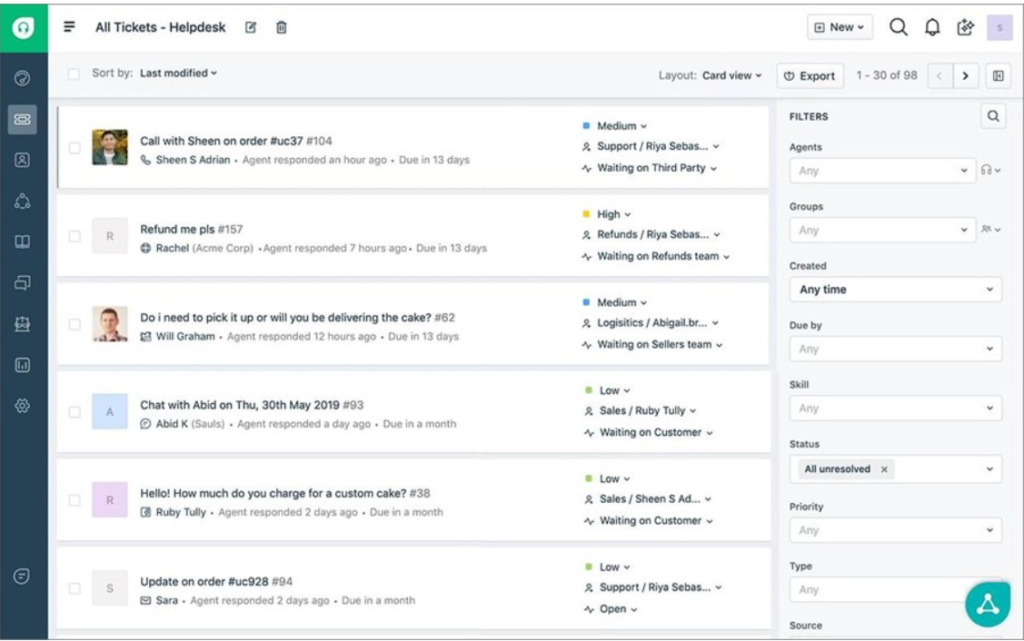
Key features:
- Multichannel support: Manage customer inquiries from email, chat, phone, and social media in one place.
- AI-powered Freddy bot: Automate responses to common questions and guide users using your knowledge base.
- Smart ticketing: Automatically assign, prioritize, and escalate tickets using custom rules.
- Team collaboration: Use tools like Team Huddle and private notes to resolve tickets faster with internal support.
- Time tracking & SLA management: Monitor resolution time and ensure compliance with SLAs.
- Built-in knowledge base: Create a multilingual help center and power self-service with Freddy Answers.
Where Freshdesk excels Intercom?
- More predictable and affordable pricing, especially for growing teams.
- Stronger built-in ticketing system with better workflow automation.
- Includes deeper reporting tools even in lower-tier plans.
- More effective queue management and prioritization features.
- Supports multiple brands and help centers out-of-the-box.
Pricing:
- Free – $0 per user/month
- Growth – $15 per user/month
- Pro – $49 per user/month
- Enterprise – $79 per user/month
Free trial:
14 days
4. Zoho Desk
Zoho Desk is a powerful help desk platform designed to streamline customer support through intelligent automation, AI, and strong integrations. It’s part of the broader Zoho ecosystem, making it ideal for businesses already using tools like Zoho CRM.
Zoho Desk brings together customer conversations from various channels into a single, easy-to-use interface. With smart automation, ticket routing, and productivity tools, it helps support teams respond faster and more effectively.
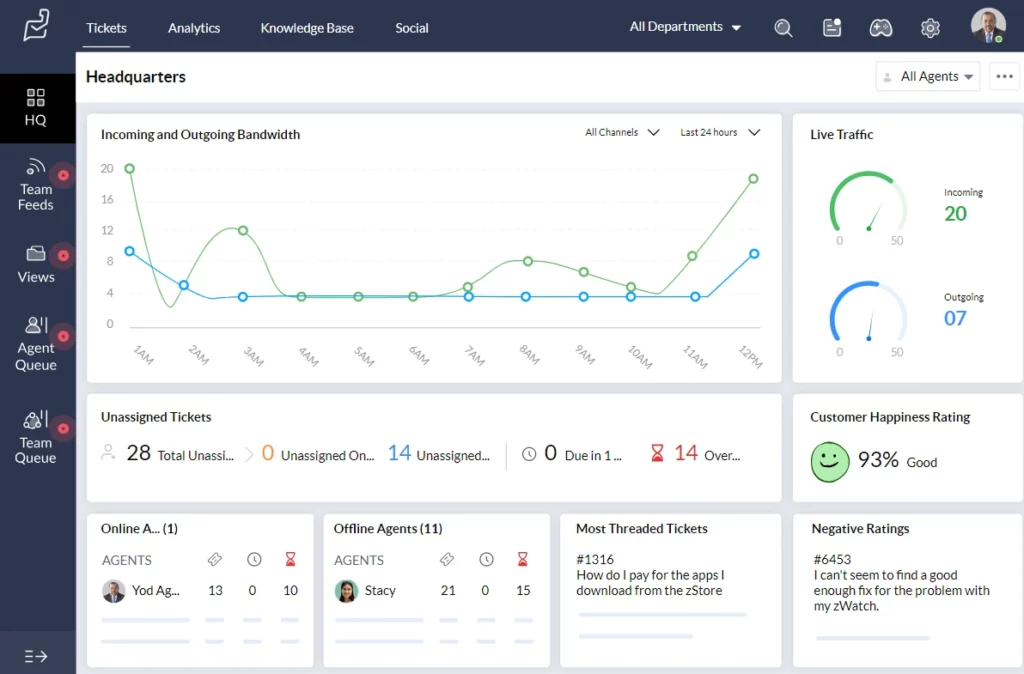
Key features:
- Context-aware support: Understand each ticket better with customer history and relevant details automatically displayed.
- AI-powered assistant (ZIA): Suggests responses, tags tickets, and provides sentiment analysis to support agents in real-time.
- Multichannel inbox: Combine email, chat, social media, and calls into a unified workspace.
- Workflow automation: Set up custom rules for ticket assignment, escalations, and responses to minimize manual tasks.
- Customizable knowledge base: Create branded help centers and track which articles perform best.
- Time tracking & productivity tools: Monitor how long agents spend on tickets and optimize performance.
Where Zoho Desk excels Intercom?
- More cost-effective pricing with advanced features included in lower-tier plans.
- Stronger native integrations with Zoho apps and other business tools.
- More powerful workflow automation for growing support teams.
- Enhanced productivity tracking and time management.
- Built for multi-department support teams with role-based access and management.
Pricing:
- Free – $0 per user/month
- Standard – $20 per user/month
- Professional – $35 per user/month
- Enterprise – $50 per user/month
Free trial:
15 days
5. Help Scout
Help Scout is a customer support platform built around simplicity, collaboration, and delivering a more human touch to customer service. With a shared inbox at its core, Help Scout allows support teams to manage customer conversations across channels while keeping user context front and center.
It’s particularly popular among small and mid-sized teams that want powerful tools without overwhelming complexity.
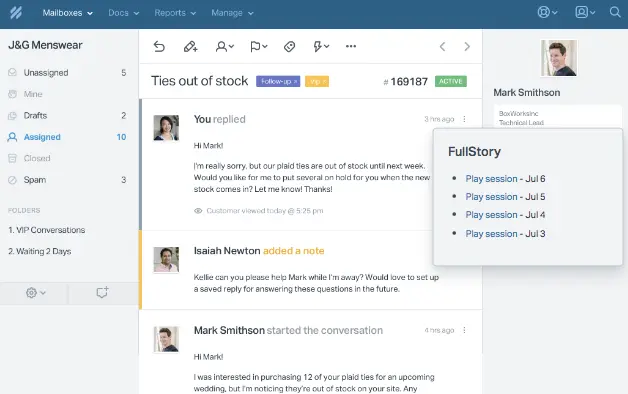
Key features:
- Shared inbox: Centralizes customer emails and chat into one collaborative workspace.
- Knowledge base integration: Help Center content is embedded into the chat widget for quick self-service.
- Customer profiles: See full conversation history and activity alongside each message for personalized support.
- Workflow automation: Use rules, tags, and assignments to streamline operations.
- Reporting & analytics: Get insights into team performance and customer satisfaction.
Where Help Scout excels Intercom?
- Simpler and more transparent pricing ideal for growing teams.
- Focused on email-first support with seamless collaboration tools.
- Superior knowledge base functionality baked into the live chat experience.
- More personal support approach with less reliance on bots.
- Built-in customer happiness tracking to improve service quality.
Pricing:
- Standard – $55 per/month. Starts with 100 contacts per month.
- Plus – $83 per/month. Starts with 100 contacts per month.
Free trial:
15 days
Recommended Reading: Help Scout Pricing: Does it Offer Value for Money in 2025?
6. Olark
Olark is a simple and effective live chat solution built to help businesses connect with website visitors in real time. It’s especially great for teams that want a no-fuss tool that’s easy to set up, customize, and use for proactive customer engagement.
From branded chat windows to automated messaging and chatbot support, Olark makes it easier to manage conversations and provide fast, helpful responses.
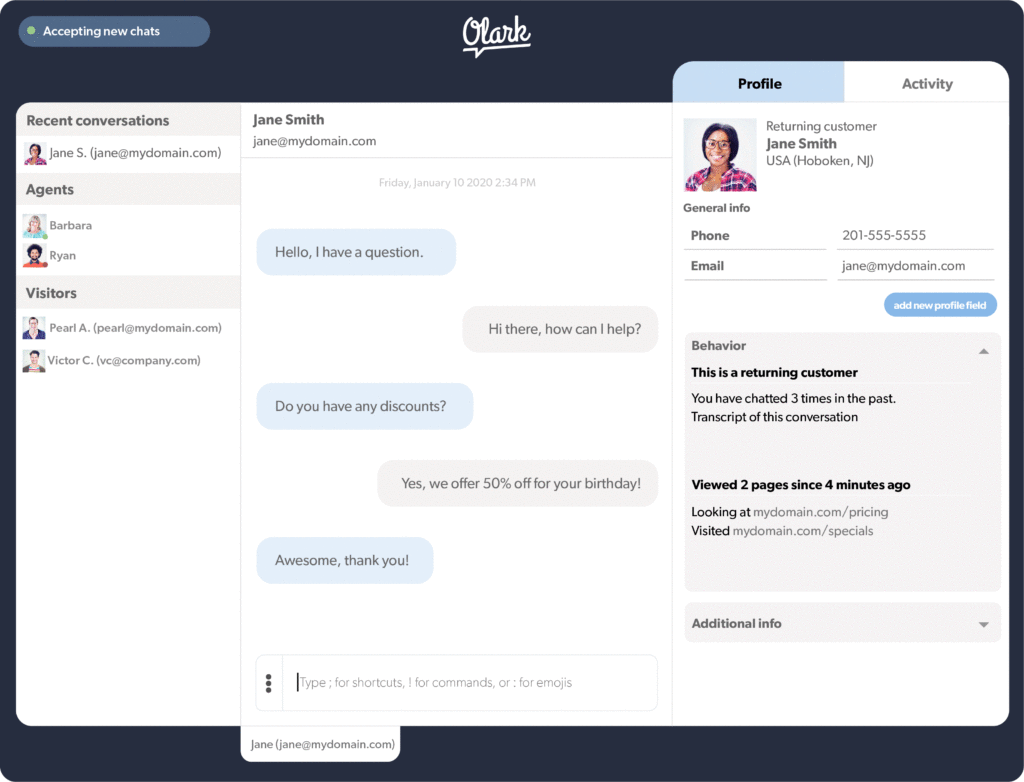
Key features:
- Pre-chat surveys: Gather key details from visitors before the chat starts.
- Targeted messaging: Send automated chats based on visitor behavior or location.
- Searchable chat transcripts: Quickly find past conversations when needed.
- Co-browsing: Let agents view a customer’s screen to assist in real time.
- Live chat translations: Automatically translate chats into different languages.
- Custom chatbot flows: Use Olark’s CoPilot service to have bots built for your business.
Where Olark excels Intercom?
- More affordable live chat focus with real-time support features.
- No-code automation and chat routing that’s easy to configure.
- Highly customizable UI to match your brand’s style.
- Add-on powerups like co-browsing and live translations extend functionality.
Pricing:
- Standard Plan: $29 per seat/month.
- Pro Plan: Contact sales for pricing (includes AI and Powerups)
Free trial:
14 days
7. Crisp
Crisp is an all-in-one messaging platform designed for small businesses and startups. It brings together messages from multiple channels into one shared inbox, making customer communication faster and easier for teams.
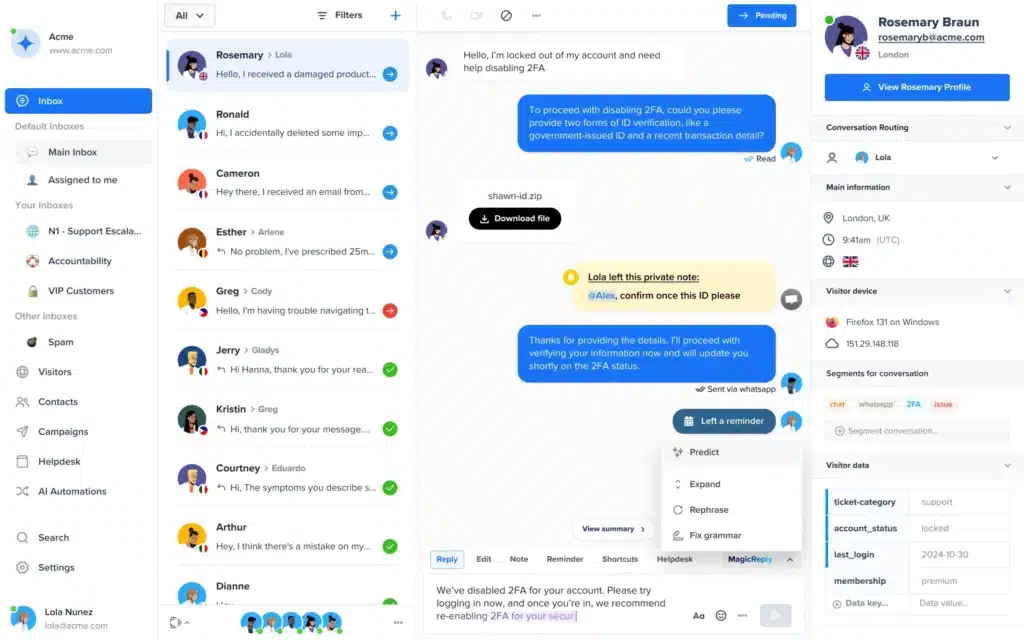
Key features:
- Shared inbox: Centralizes messages from email, live chat, Messenger, WhatsApp, and more.
- Live chat widget: Supports video/audio calls, chatbot automation, and multi-channel messaging.
- AI tools: Offers AI-powered replies, auto-tagging, conversation summaries, and inbox assistant.
- Knowledge base: Multilingual and customizable, integrates directly into chat and mobile apps.
- Email & messaging automation: Create automated workflows across email, chat, SMS, and WhatsApp.
- CRM & integrations: Includes built-in CRM and connects with tools like Slack, Salesforce, Zapier, and WordPress.
Where Crisp excels Intercom?
- Free plan available with essential tools for small teams.
- Stronger value for startups thanks to simple setup and broad integrations.
- AI features included without needing complex setup.
- One workspace for all channels, no need to switch platforms.
- Quick WordPress integration via plugin.
Pricing:
- Essentials plan – $95 per month, per workspace.
- Plus plan – $295 per month, per workspace.
Free trial:
14 days
8. Tidio
Tidio is one of the best customer service platform and an Intercom competitor. It is a user-friendly live chat and chatbot platform designed for real-time customer engagement. It’s especially popular with small to medium-sized e-commerce businesses thanks to its fast setup, intuitive interface, and strong automation tools.
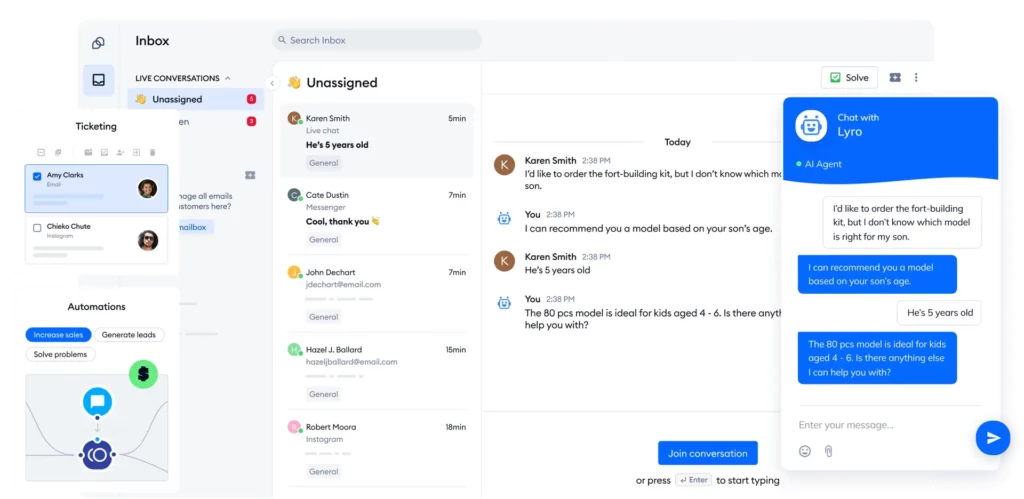
Key features:
- Live chat & unified inbox: Manage conversations from live chat, email, Messenger, and Instagram in one place.
- AI chatbots: Use visual flow builders to automate lead qualification, support, and responses.
- Live typing preview: Agents can see what users are typing before they hit send.
- Canned responses: Quickly reply to FAQs for faster support.
- Email automation: Launch newsletters, product updates, or cart recovery emails with a drag-and-drop builder and templates.
- E-commerce integrations: Seamlessly connects with Shopify, BigCommerce, WooCommerce, and more.
- Multilingual support: Auto-translate chats to serve global audiences.
- Real-time analytics: Monitor performance with charts and user feedback.
Where Tidio excels Intercom?
- Affordable chatbot plans with no cap on conversation volume.
- Faster setup and easier chatbot creation.
- Better for e-commerce with direct platform integrations.
- More generous free tier for small businesses.
- Simpler, transparent pricing.
Pricing:
- Starter: $29/month
- Growth: $59/month
- Plus: $749/month
- Premium: $2999/month
Free trial:
7 days
9. Front
Front is a collaborative customer support platform that unifies communication from email, SMS, and social media into one shared inbox. It’s built to improve team collaboration, speed up responses, and deliver a more personal customer experience.

Key features:
- Unified inbox: Centralizes messages from email, chat, WhatsApp, SMS, and more.
- Team collaboration: Assign, comment, and work on conversations together.
- Automation: Predefined responses and ticket routing to boost efficiency.
- Real-time insights: Monitor performance with reporting tools.
- Integrations: Connect with tools like Mailchimp, HubSpot, and knowledge bases.
Where Front excels Intercom?
- Smooth multichannel communication.
- Strong collaboration and task assignment tools.
- Custom workflows for faster responses.
Pricing:
- Starter: $19/month per seat
- Growth: $59/month per seat
- Scale: $99/month per seat
Free trial:
Free trial available for the Starter plan.
10. LiveAgent
LiveAgent is an all-in-one help desk platform ideal for businesses needing strong phone and multi-channel support. It features a unified inbox and built-in call center tools for seamless customer communication.
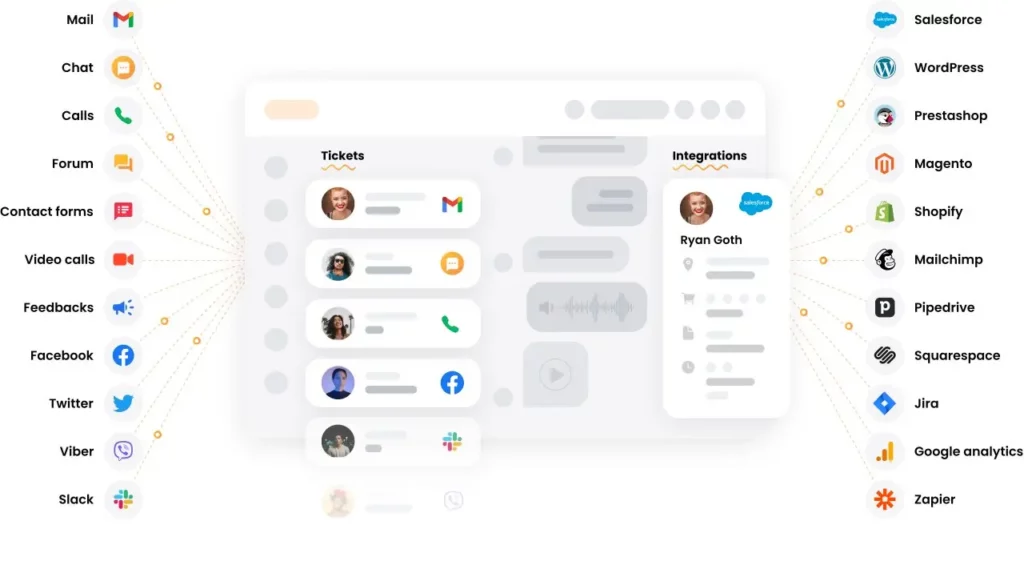
Key features:
- Universal inbox for all communication channels.
- SLA tracking and time management features.
- VoIP-enabled call center for phone support.
- Customizable chat widgets and automation tools.
- Gamification tools to boost agent productivity.
Where LiveAgent excels Intercom?
- More features included in base plans.
- Superior phone and ticketing support.
- Better social media and customer portal integration.
Pricing:
- Small business: $15/month per agent
- Medium business: $29/month per agent
- Large business: $49/month per agent
- Enterprise: $69/month per agent
Free trial:
30 days
Recommended Reading: Top LiveAgent Alternatives in 2025
How to choose the right Intercom alternative for your team?
With so many powerful customer service software options on the market, each with its own features and pricing models, choosing the right Intercom alternative can feel overwhelming. To simplify your decision-making process, here are the key factors you should carefully evaluate before making the switch:
1. Prioritize AI—but watch the price
AI capabilities are quickly becoming a must-have in customer support software. While Intercom offers robust AI tools like Fin and Copilot, they often come with additional usage fees that can drive up your costs. Look for alternatives that offer AI features as part of their base pricing or at a more affordable rate.
2. Understand the pricing structure
Many platforms have layered pricing plans, with essential features spread across different tiers. Intercom’s variable pricing, especially the pay-per-AI-resolution model, can make monthly costs unpredictable. Be sure to review each plan in detail to avoid surprises down the line.
3. Test customer support responsiveness
You’re investing in a customer support tool, so their own support should be top-tier. During your free trial, send a few queries to test response speed and helpfulness. This can be a clear indicator of how much you can rely on their team when you need help.
4. Look for simplicity and ease of setup
A tool packed with advanced features might sound impressive, but complexity can lead to a steep learning curve. Choose a platform that’s easy to set up, intuitive to use, and doesn’t require extensive training for your team to get started.
5. Align features with your goals
Rather than being swayed by a long list of features, focus on whether the tool supports your team’s actual goals—be it better response times, more automation, or deeper integrations. An overloaded platform can slow you down and increase operational costs.
6. Check real user feedback
Before committing, explore trusted review sites like G2 and Capterra. They’ll give you honest insights into real-world performance, support quality, reliability, and overall satisfaction from businesses like yours.
By keeping these factors in mind, you can confidently choose a tool that not only matches your budget but also empowers your team to deliver exceptional customer experiences.
Switch to smarter support with Desk365!
Frequently asked questions
Businesses often seek alternatives due to Intercom’s high costs, especially after startup discounts end. Users also report issues like slow performance and limited support during outages.
Top affordable options include Desk365, Freshdesk, Zoho Desk, and Tidio. These platforms offer strong features at transparent, budget-friendly pricing.
Desk365 provides AI tools like ticket summarization, auto-responses, and AI-powered knowledge base generation. It delivers efficiency without the steep pay-per-resolution costs.




